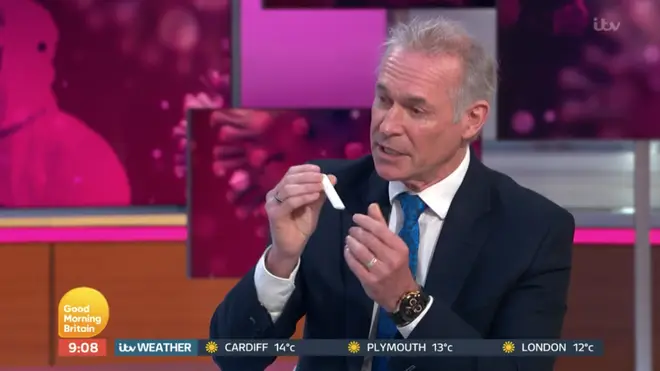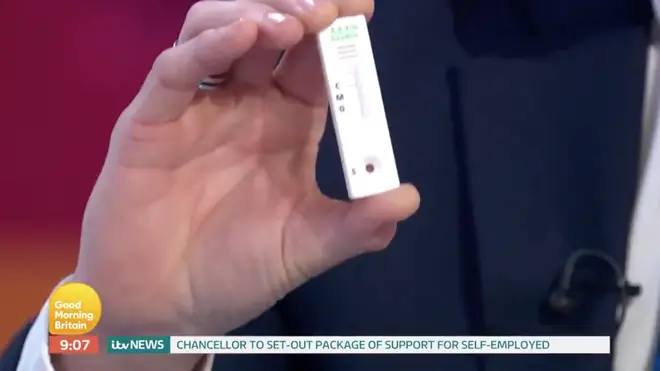Dr Hilary explains how the 'game-changing' finger-prick coronavirus test works
26 March 2020, 11:23
A new coronavirus test is currently being developed, and this is how it works.
Dr Hilary appeared on Good Morning Britain on Thursday this week, where he showed Lorraine Kelly and Ben Shephard how the new finger-prick coronavirus test works.
The test is currently still being developed, and is said to be going through quality control testing in Oxford this week.
READ MORE: Doctor explains how just one person with coronavirus could infect 59,000 others
While the test is not available to the public yet, Dr Hilary good hold of one in order to show viewers how it works.

He explained that this test, which the UK Government had ordered 3.5 million of, determine whether you have had the virus and are now immune.
"It works by putting a drop of blood in a well, and a couple of drops of buffer solution", he said.
The doctor continued: "And then the liquid is drawn up through the filter to the reagents which is called amino assay, so it's basically measuring the chemicals within the virus itself."

In short, it will tell people if they have been exposed to COVID-19 or not.
Dr Hilary said that the test will be "really useful" for people who need to know if they can go back to work safely, calling the test a "game-changer".
He went on to explain to Lorraine and Ben: "There are two types of antibody that we make when we're exposed to this virus.

"One is called IGG, one is called IGM. IGM raises quite quickly, within seven days of the illness and lasts for two to three weeks.
"IGG lasts longer, it raises about 14 days after exposure to the virus, and after symptoms, and lasts for up to around six months."
READ NEXT: Boris Johnson announces police-enforced lockdown across the UK to stop coronavirus



































